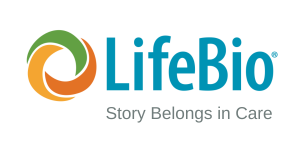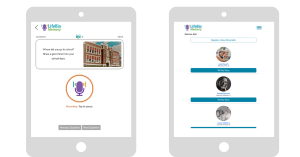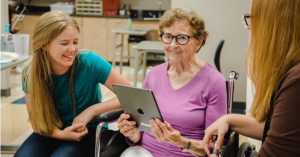LifeBio Memory™ Life Story App Nears Completion of Clinical Trials
Data from seven focus groups impacted product development, implementation procedures and training materials
“Our research partners at Benjamin Rose Institute on Aging have been very intentionally testing all aspects of how the LifeBio Memory platform will be implemented into assisted living, memory care communities and nursing homes. The data we received from seven different focus groups has already led to a number of key improvements in usability,” said Beth Sanders, founder and CEO of LifeBio, Inc. “This information is fully enabling this software to achieve its goal of creating a point-of-care, personalized experience that will be transformational in building relationships and impacting quality of care.”
Data from a series of seven focus groups, which have included both people living with dementia and staff members of residential care communities, has been used in the development of significant product improvements, including the software’s user interface and a series of on-demand training videos and implementation procedures to aid older adults, family members, volunteers, and staff members in effectively using the program. Key focus group findings included:
• LifeBio has high value and the life story interview is the cornerstone. The chance to engage with another person is very important in the process.
• Voice recording, using the LifeBio Memory app, was preferred versus handwritten responses or data entry. Focus group participants found it was convenient and easy to use, it auto-saved recordings, and it captured more than what was normally done with handwritten notetaking methods.
• New voice-to-text technology shows promise in processing life story information and the text summaries (LifeBio Snapshots/Action Plans) are an important element in delivering person-centered care.
• Clear and comprehensive training for using the LifeBio Memory app is a crucial piece in ensuring effective delivery of this type of software.
• Having access to a person’s life history can help staff members better engage with residents in senior living.
LifeBio, Inc. staff utilized the focus group findings to finalize the LifeBio Memory tablet app and associated training materials and videos in preparation of a clinical trial, currently being conducted by Benjamin Rose Institute on Aging. Set to be completed in April of 2023, the clinical trial has engaged 10 dementia care communities with more than 120 residents and 60 staff members.
“We have always believed that the life story belongs in care. Care will continue to be delivered in home or in a variety of care settings. Now we see that recording the person’s voice and care preferences and then summarizing that data is transformational. New voice-to-text Artificial Intelligence (AI) technology shows promise in speeding up the processing of life story information. People delivering care can more easily see and use it to engage and bring comfort. Now, in this clinical trial, the research goes one leap further to track the impact on both people living with dementia and the staff that cares for them,” Sanders said.
Preliminary findings from the clinical trials have begun to provide meaningful data on the feasibility, acceptability, and user-friendliness of this innovative tablet-based application within various residential care environments. For residents in senior living, the evaluation includes measuring depression level, loneliness level, quality of life, and satisfaction with the life story process. With staff members, attitudes toward residents, job satisfaction scale, and a person’s sense of competence in dementia care will be some areas reported on pre- and post-intervention.
“As the clinical trial comes to a close, our research team will be analyzing data on a variety of outcomes including staff and resident experiences with the life story interview, how the life story process impacts the relationship between resident and staff, and how the life story books and associated products are being used by care staff to interact with residents while providing care,” said Silvia Orsulic-Jeras, Research Associate at Benjamin Rose Institute on Aging.
The LifeBio Memory iOS and Android app cultivates communication and person-centered care using reminiscence therapy1. With more than 6 million people living with Alzheimer’s Disease or another form of dementia today and a growing aging population, LifeBio Memory supports the needs of professional and family caregivers by storing the individuals’ stories and preferences in their own voice using step-by-step questions and photo prompts, generating reporting and making data useful in care delivery. Personal photos can be uploaded to enhance the stories shared. Family members will also be able to assist a loved one living with dementia.
About Benjamin Rose Institute on Aging: Founded in 1908, Benjamin Rose Institute on Aging (www.benrose.org) is a nationally recognized Cleveland-based nonprofit whose mission is to support caregivers and empower all people to age well through research, consumer-responsive services and client advocacy.
About LifeBio Inc.: LifeBio Inc. (www.lifebio.com) is an agetech company based in Central Ohio that builds care management applications. LifeBio is deployed in health plans and senior care providers nationwide because story belongs in care.
LifeBio Memory is supported by the National Institute on Aging of the National Institutes of Health under Federal Award Identification Number R44AG069566. The content is solely the responsibility of the authors and does not necessarily represent the official views of the National Institutes of Health.
Becky Williams
LifeBio
+1 937-303-0039
becky@lifebio.com
Visit us on social media:
Facebook
Twitter
LinkedIn
Instagram
YouTube
WATCH NOW: LifeBio Memory in Action at https://vimeo.com/684473956
1 https://www.lifebio.org/research-and-healthcare-transformation/
2 https://www.lifebio.org/our-solutions/lifebio/
3 https://www.lifebio.com



